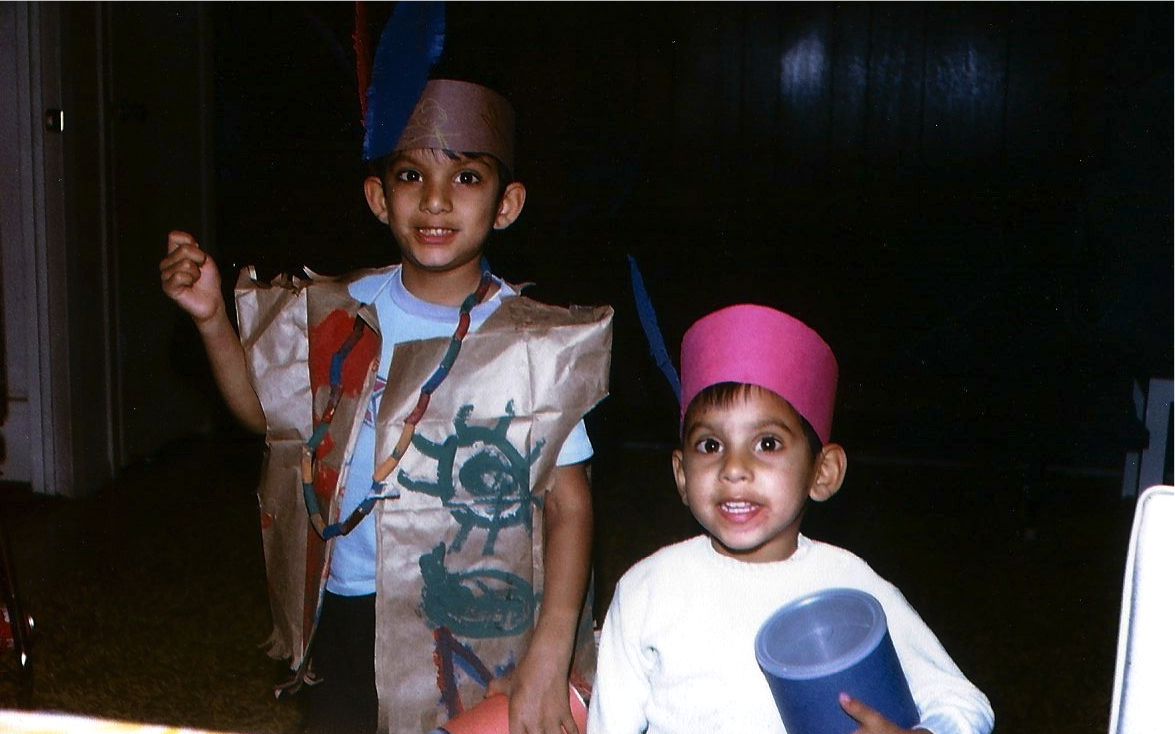
In one of my earlier (and mollifying?) blog posts (White Hindu Converts: Mimicry Or Mockery?) I addressed the sincerity and post-colonial complexities of white Hindu converts whose actions could be perceived as mimicry morphing to mockery. Though the article did concern these converts, careful readers noted that the more significant issue concerned the challenges for many Hindus in the Diaspora to acculturate, assimilate, and integrate when immersed in a purportedly post-colonial context.
To deny these challenges, as many did, would be to ignore the historical denigration of Indians and "Asians" in post-colonial countries and this, of course, includes the United States. After all, in United States v. Bhagat Singh Thind (261 U.S. 204 (1923)), Bhagat Singh Thind, a Sikh immigrant from India, was denied the right to become a naturalized citizen because he was not a "white person." Moreover ""Free white persons," as used in that section, are words of common speech, to be interpreted in accordance with the understanding of the common man, synonymous with the word "Caucasian" only as that word is popularly understood." (P. 261 U. S. 214. Ozawa v. United States, 260 U. S. 178.) But do forgive me, for I digress...
As comedian Louis C. K. has pointed out, it is odd and disrespectful that Americans still call Native Americans "Indians" after all these years despite knowing full well that they are, well, not really Indians. Still worse, it is now a tradition in America for elementary school students to make costumes of prototypical "Pilgrims" and idealized "Indians" and to pretend to be an Indian or Pilgrim who is attending the so-called first Thanksgiving.
But is their mimicry of "Indians" merely disguised or (unintentional) mockery?
And which "Indians" are being mocked anyway?
American-Indians? (Native-Americans? Indigenous people of the Americas?)
Indian Indians?
Or is the elementary school arts and crafts project a remainder and reminder of an offensive and anachronistic artistic Primitivism, where American-Indian-ness is essentialized, idealized, and fetishized?
And are the seemingly innocent and elementary elementary school Thanksgiving activity merely used to inculcate and endorse injustice?
[Aside: Should Americans celebrate and teach about the 13th Amendment (outlawing slavery) annually on April 8th in elementary schools by having students dress up as slave-owners and slaves? If not then how does this scenario differ from the plight of the American-Indians/ Native-Americans/ Indigenous people of the Americas?]

And, what happens when Indian-Americans, such as myself, are asked/ required to partake in the mockery? Who are they mimicking? Who are they mocking? Are they mimicking/ mocking themselves? An imagined oriental/ Indian?
By performing the play of the pilgrim, does the Indian-American elementary school student inadvertently become the oppressor? Or confirms the oppression? Or conforms to the oppressor? Does s/he imagine that in so doing that s/he becomes, well, "white"? An honorary white? Basically white? An Oreo cookie? Or just thankful?
And when you called me a spear-chucker on the bus to elementary school to insult me (you know who you are) and I "defended" myself by saying that I was not that sort of Indian, did I offend that sort of Indian?
And by performing the play at school (and does s/he get to play the pilgrim or is s/he always the "Indian"?) is s/he merely playing into the hands of the oppressive powers that be? Is s/he becoming a mere Uncle Tom? Is sh/e training to be like Stephen, the senior house slave in Quentin Tarantino's Django Unchained? Or is s/he en route to becoming a modern-day sepoy in the British service?
Mimicry?
Mockery?
Mimic. Cry.
